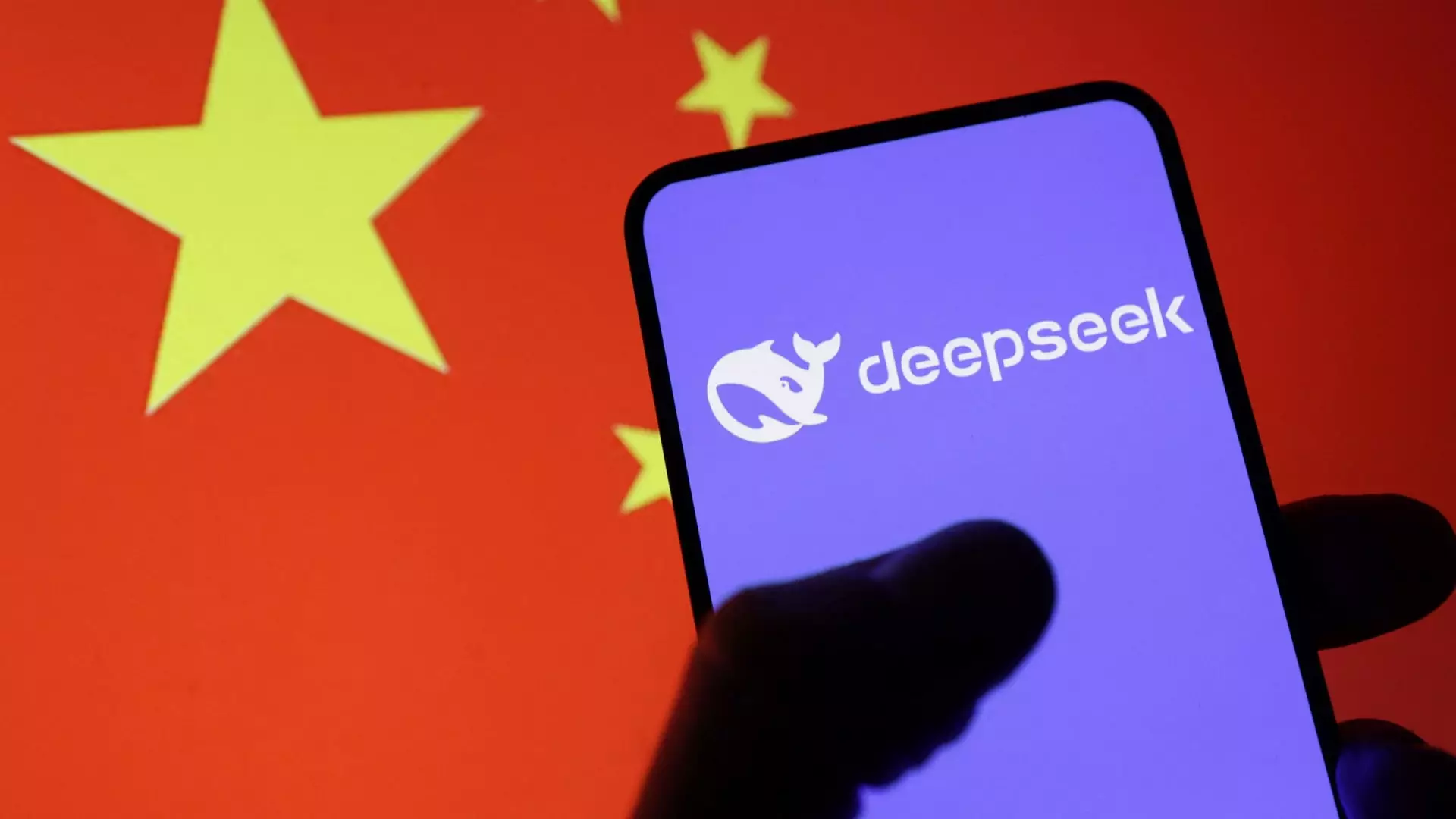China’s technological landscape is rapidly transforming, especially in the realm of artificial intelligence (AI). In a whirlwind of activity, Chinese tech firms like Tencent and Alibaba have recently unveiled new AI products, showcasing innovations that often draw comparisons to global players such as OpenAI. Amidst all this excitement, however, it’s crucial to examine the underlying implications of this frenetic push towards AI supremacy. While there are certainly opportunities for growth, the broader narrative entails serious concerns that merit attention.
The Mirage of Innovation
At first glance, the arrival of new applications, like the Manus AI from the nondescript startup Monica, heralds a promising era for tech in China. However, reports suggest that despite its claims, Manus might not hold the significance implied by its creators. Analysts from Nomura have pointed out that while advancements are underway, they do not necessarily translate to groundbreaking innovation. Such observations lead us to question whether this push for AI is truly about elevating capabilities or merely an exercise in branding. In a country known for its rapid technological adaptations, the challenge lies in distinguishing substantial progress from an overhyped spectacle.
Economic Realities and AI Infrastructure
China’s current economic backdrop is nothing if not challenging. With increasing tariffs and a noticeable slowdown in growth, the government’s recent decision to boost deficit funding—accompanied by subsidies for consumer trade-ins and support for tech firms—raises eyebrows. While the intention may be to stimulate innovation, these measures could be seen as a desperate attempt to shore up a faltering economy rather than a genuine endorsement of technological growth. The notion that investment in AI infrastructure acts as a beacon of hope may also be flawed; such investments can be perceived as band-aids on deeper economic wounds.
Policy Support or Stifling Control?
The Chinese government’s overt support for tech initiatives often brings a sense of optimism; however, this sentiment is tempered by an alarming trend of increasing surveillance and control. As officials laud the potential of homegrown AI advancements, a critical question arises: Is this encouragement a façade masking an agenda that prioritizes state power over individual innovation? The state’s heavy hand in dictating innovation pathways can pave the way for a chilling effect on genuine creativity, constraining the sort of risk-taking that is vital for groundbreaking advancements.
Market Performance vs. Substance
The Hang Seng Index’s impressive surge can easily lead investors to overlook fundamental issues within China’s tech sector. Analysts from Cambridge Associates highlighted the dichotomy in stock performances between Hong Kong-listed tech giants and their mainland counterparts. While the rally may appear robust, it is essential to consider the sustainability of such growth. Is the optimism driven by tangible advancements or merely speculative fervor? The question is whether short-term market gains could give way to a disillusionment if suppliers and firms fail to deliver on their lofty promises.
The Tencent Challenge: Balancing Growth and Responsibility
Tencent stands out in this burgeoning landscape, making strides in AI development with tools like the Hunyuan model and Yuanbao assistant. While the company is being touted as a leader in the space, accountability becomes increasingly pertinent when navigating the ethical waters of AI deployment. The rapid rollout of these technologies and their integration into widely-used apps like WeChat raise significant concerns over privacy and data security. As Tencent pushes the envelope in AI productionization, it must also grapple with the responsibility that comes with such technological advancements.
The Social Dimension: Bridging Innovation and Public Perception
While companies are focused on crafting remarkable AI technologies, they often neglect a crucial component: public reaction. The success of AI initiatives will largely depend on how society perceives and interacts with these technologies. Innovations like Yuanbao may face backlash if consumers feel overwhelmed or exploited by capabilities that intrude upon their daily lives. Striking a balance between leveraging technological advancements and addressing societal needs must be a priority for these companies and policymakers alike.
A Reckoning Awaits? The Future of China’s AI Landscape
The unfolding narrative of China’s AI revolution is one intertwined with both promise and peril. The rapid push suggests a country ready to stake its claim in the global tech arena, but deeper issues around innovation quality, economic stability, and ethical implications loom large. Amid government proclamations of support and burgeoning market dynamics, the task for stakeholders is to navigate these waters with a discerning eye. As China charges ahead, the question remains: Will it forge a sustainable path to true innovation, or will it ultimately find itself caught in a web of its own aspirations?

